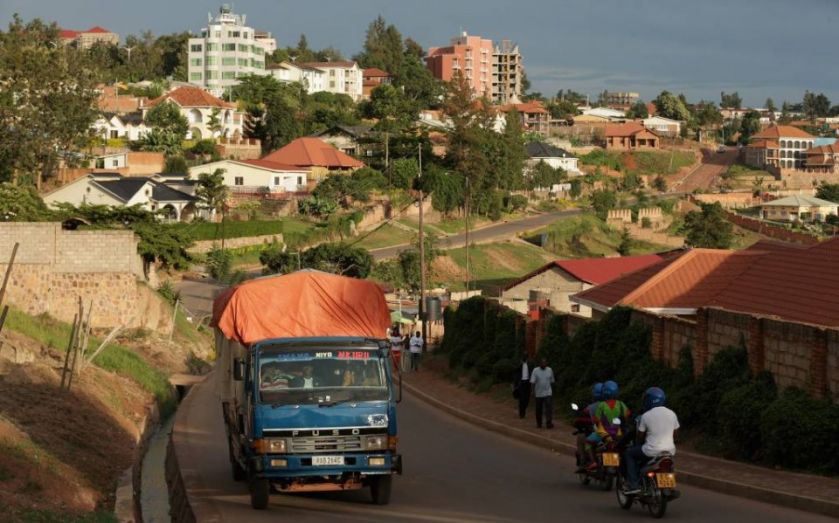Why would Bob Diamond want to buy a bank in Rwanda anyway?

So Bob Diamond's Atlas Mara is eyeing a second bank in Rwanda. The former Barclays boss's pet project is reportedly in talks to buy a 45 per cent stake in Banque Populaire du Rwanda (BPR) – a snip at $22.m (£14.7m). That's after its acquisition of BRD Commercial Bank, another Rwandan lender it bought last year.
Even by emerging economy standards, Rwanda is a pretty random choice. Some 20 years after its genocide, the country is more often associated with images of haunted-looking villagers nursing machete wounds than a sophisticated banking and finance sector. Why would Diamond – who is known for being a savvy investor – choose Rwanda?
Actually, this could be an incredibly good decision. Physically, the country may be dwarfed by its neighbours, DRC to the west, Tanzania to the east and Uganda to the north, but it has a huge amount of political power in the region. That's partly because of the speed at which its economy is growing – in 2014, GDP rose seven per cent.
President Paul Kagame has taken a dogged approach to transforming the country's economy, cracking down on corruption (last year it came 55th in Transparency International's transparency index. Italy came 69th) and focusing on turning the country into one of Africa's tech hubs. The country now has fibre-optic broadband throughout the country, and you can incorporate a business in less than 24 hours. That sort of thing is unheard of in the West.
Its finance sector, too, has been transformed. In 2007 it established a Capital Markets Authority and in 2011 the Rwandan Stock Exchange was launched – although at the moment just six companies are listed on it. Still, it's in the process of being automated.
On a continent where banks are notoriously difficult to access, Rwanda's banking sector does provide opportunities for investors. In 2011 (the latest figures available), 39.4 per cent of households had at least one savings account, according to government figures. That's compared with about 20 per cent across the whole of Africa. And BPR has a 65 per cent share of Rwanda's banking market. You can see why Diamond is betting on its success.
The only fly in the ointment may be Kagame himself. The President – who led the Rwandan Patriotic Front (RPF), the force said to have "liberated" Rwanda during the genocide – is unusual for an African leader: on the one hand, it's undeniable that his single-minded determination has pulled Rwanda above its neighbours. Its (main) streets are paved, its literacy rates are high and the number of people below the poverty line is falling.
On the other, his regime has been heavily criticised for its relentless pursuit of economic growth above everything else. Journalists have been banished from the country, political opponents have disappeared or been found dead. His framed portrait appears above every reception desk. Let's be honest: that's a sure-fire sign something's up.
In 2017, the constitution dictates that he is due to step down. It's unlikely that will happen. In an interview with me last year, his finance minister, Claver Gatete, all but admitted it:
If the Rwandans need him, they can retain him. That's their right… If they feel they want him to continue, it's up to the people.
Hmm… analysts suggest "the people", aka Kagame and his cronies, will want him to continue.
You only have to look at neighbouring Burundi to see what happens when politicians overstep the mark. In recent weeks the country has been ravaged by its most violent protests since 2005 after President Pierre Nkurunziza decided he will "mount a bid" for a third term when elections take place in June.
It's Kagame's stubbornness that provides the most concern for investors in Rwanda. Diamond would do well to beware of this – or come 2017, his shiny new bank could be reduced to rubble.